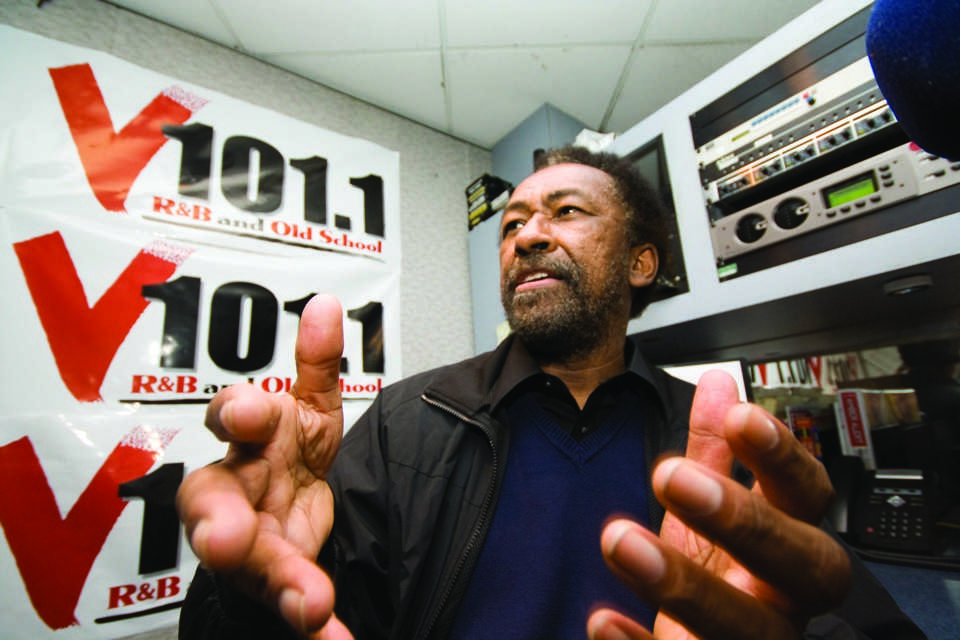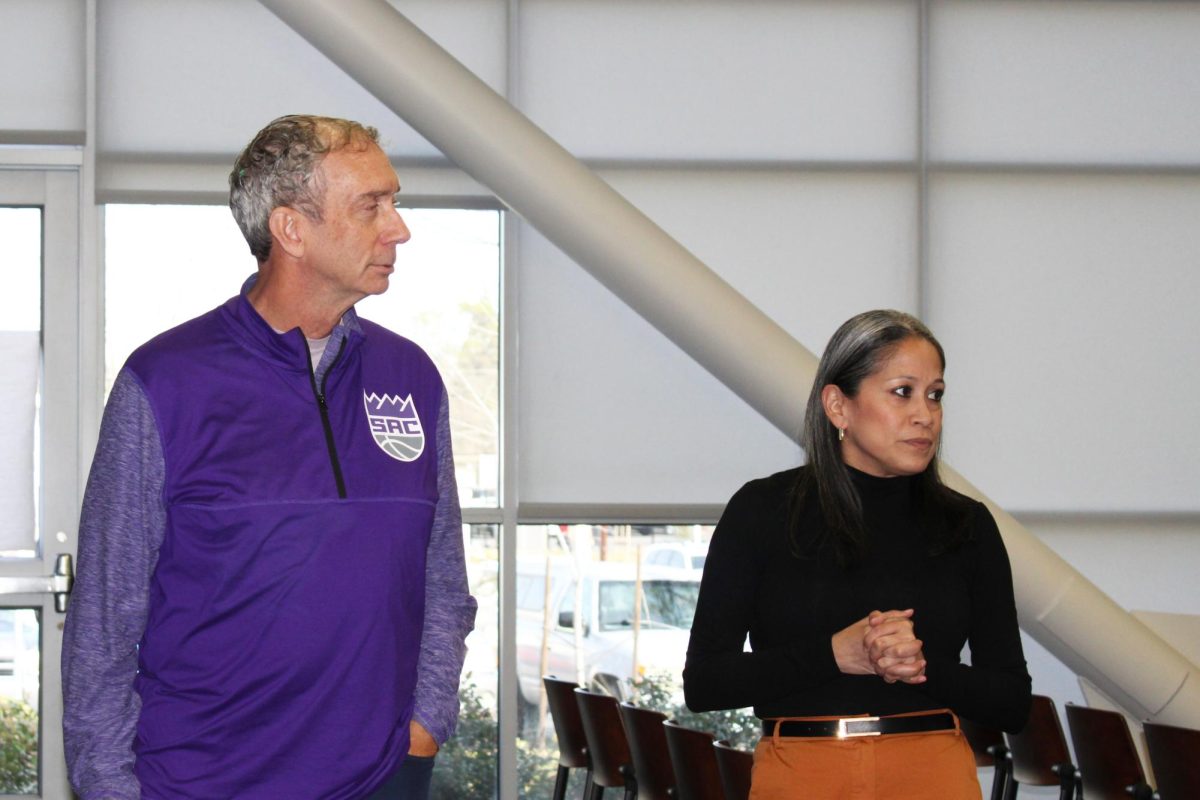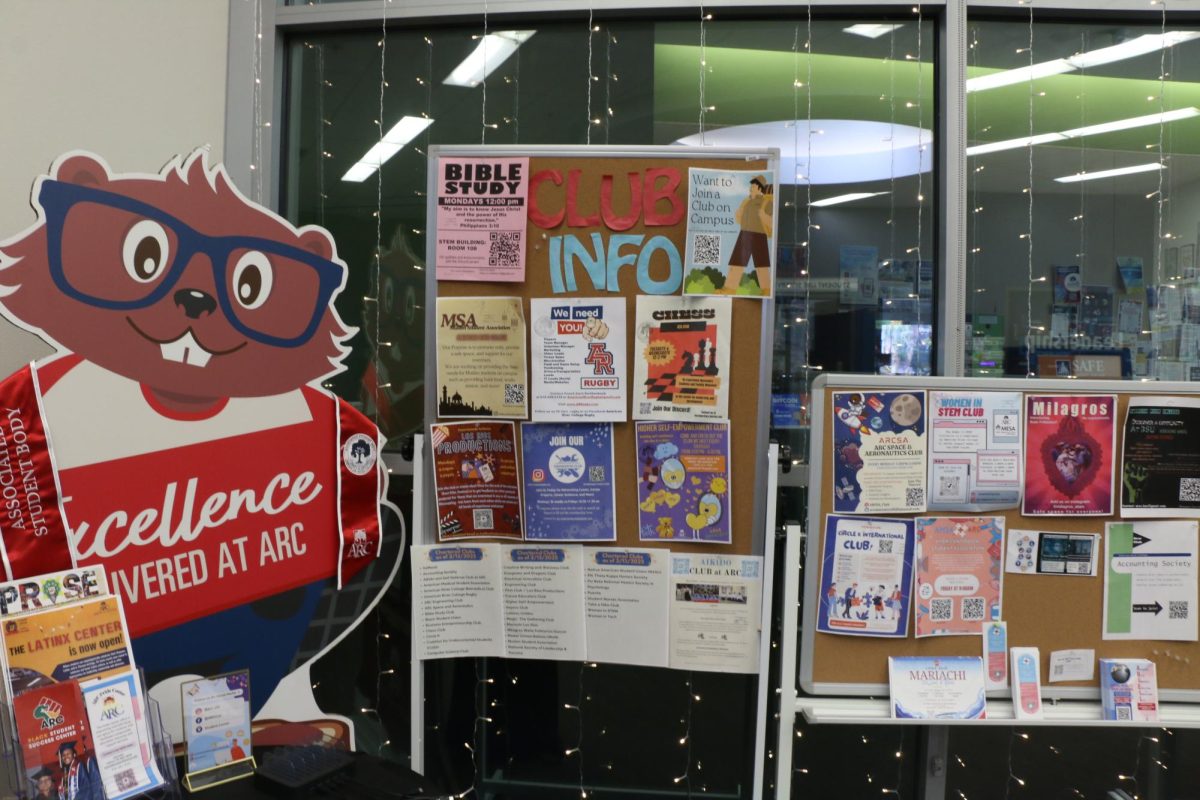He tapped his feet to the music and pumped his fist into the air. He pulled the microphone closer to him, moving the switches on the soundboard. The clock counted down to the exact second, the show started and he began to speak.
“Just a little after 3 o’clock you’ve got the Dr. Don Sainte-Johnn on the radio at V101.1. Get ready to win a grand, big money!”
Dr. Don Sainte-Johnn, broadcaster from V101.1, is better known at American River College the Introduction to Mass Media and Society Professor Wilbur Johnson.
An only child raised in La Puente, California, Johnson had dreams of being a police officer or fire fighter in elementary school. Those dreams faded away when he reached the seventh grade and decided he wanted to be a DJ. Although he believed that it was only a part-time job, his interest in the industry grew. He worked out an agreement with the principal, which allowed him to DJ the dances.
“Who better to talk to (the kids) than me, I’m one of them,” Johnson said.
To get the dance floor moving, he mimicked the talents of the local DJ’s who came to town to throw sock hops. Johnson soon realized that not only could he be a
DJ full-time, but that he also could make a good living in the radio industry. Becoming his “agents of socialization,” members of his church, as well as his teachers, encouraged him to get a college degree, just in case his plans of being a DJ didn’t work out.
In college Johnson planned out each part of his radio-broadcasting name, Don Sainte-Johnn. As a young teenager, Johnson admired DJ Don Steel and decided that he “had to” use Don. The Sainte-Johnn came from the original French version of his families’ name.
Johnson lucked out in his first broadcasting job, being in the right place at the right time when an over zealous DJ put himself out of work. From there Johnson worked as the night DJ for the summer. Once the summer ended, so did his job. Johnson found himself working in Yuma, AZ at a small radio station. To escape the heat in Arizona, he sent out hundreds of cassette tapes to radio stations throughout the United States. His efforts landed him in St. Louis, MS, Chicago, IL, and then San Francisco, CA, which had been his dream since childhood.
One of his most memorable celebrity interviews happened to be a young 12-year-old boy named Michael Jackson. “The thing he looked forward to the most was going outside and playing basketball and not being harassed for autographs,” Johnson said. “
He has worked for V101.1 for over 10 years. When Jackson died Johnson was called in as an expert because he was one of two people in Sacramento who had interviewed Michael Jackson before he died. “We leaned on him for the story,” Kitty O’Neal, KFBK News Anchor, said.
“He knew everything,” Judy Farah, Editor of KFBK, said. “He did interviews with Michael Jackson and Michael Jackson’s parents.”
Many of Johnson’s family members are teachers, but he did not grow up wanting to be a teacher. “I stumbled into the teaching thing by mistake.” “I didn’t go to school and say I was going to become a teacher.”
His mind changed after he had been invited to speak at a friend’s class and received positive evaluations. Johnson continued to speak at colleges such as San Francisco State University, San Mateo State University and ARC.
“I was fascinated by how you get people’s attention and how you can manipulate the audience and how you can manipulate the question process,” Johnson said. “I have the gift of gab.”
After taking a part-time teaching position at SFSU, he relocated to Sacramento where he was offered a position at ARC. “He’s probably one of my favorite professors, simply because he takes the time to really talk to his students and take a genuine interest in whatever you have going on,” Lelan Wells, a film and cinema major, said.
He has been a professor for 25 years, but has always taught part-time because he hasn’t been ready to cut his broadcasting ties completely. Speaking with his co-workers, it seemed that something would be missing if he left.
“It’s great because he’s a professional,” O’Neal said. “He has an amazing energy.”
Most people feel that working two jobs is hard, but for Johnson it’s a part of life. Without one or the other it would change who he is.







